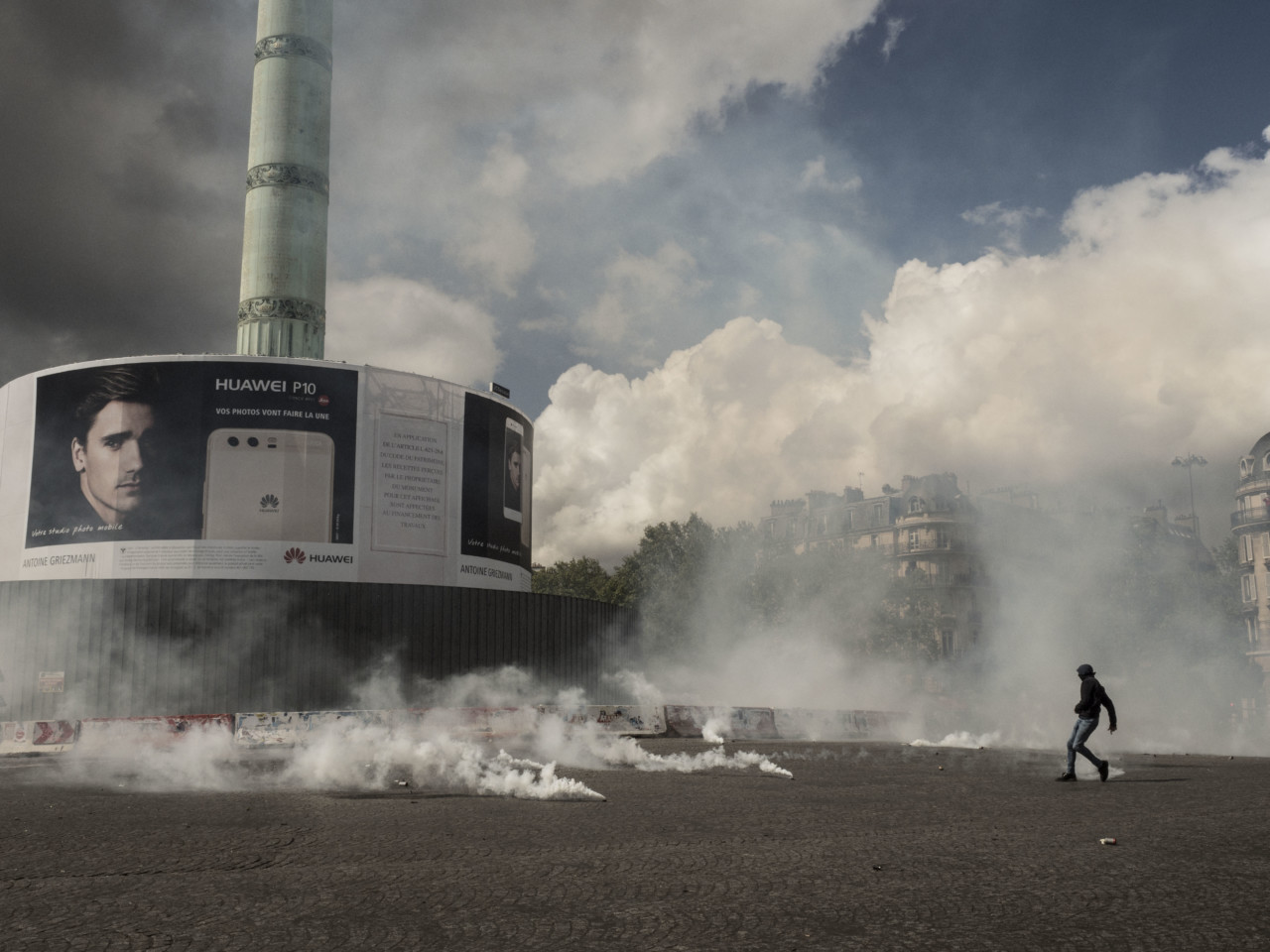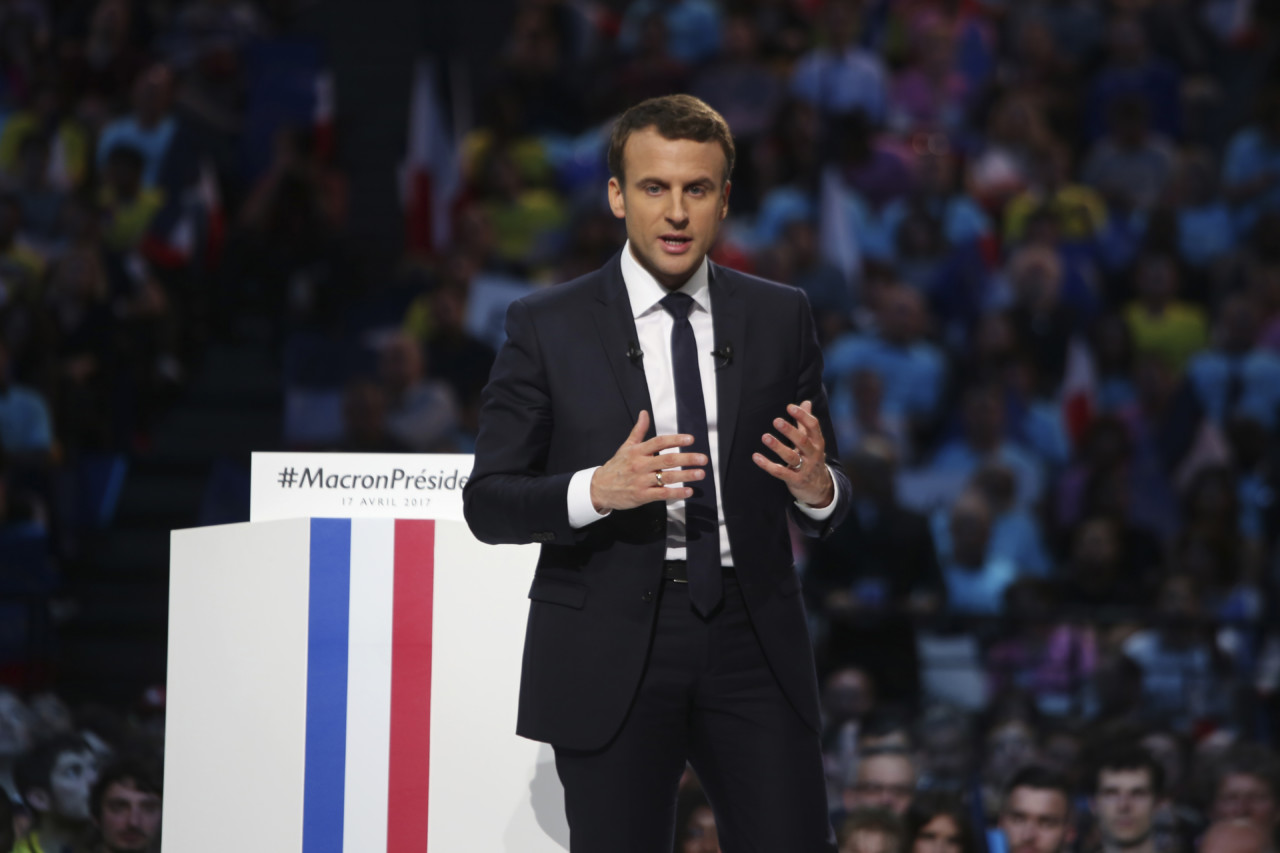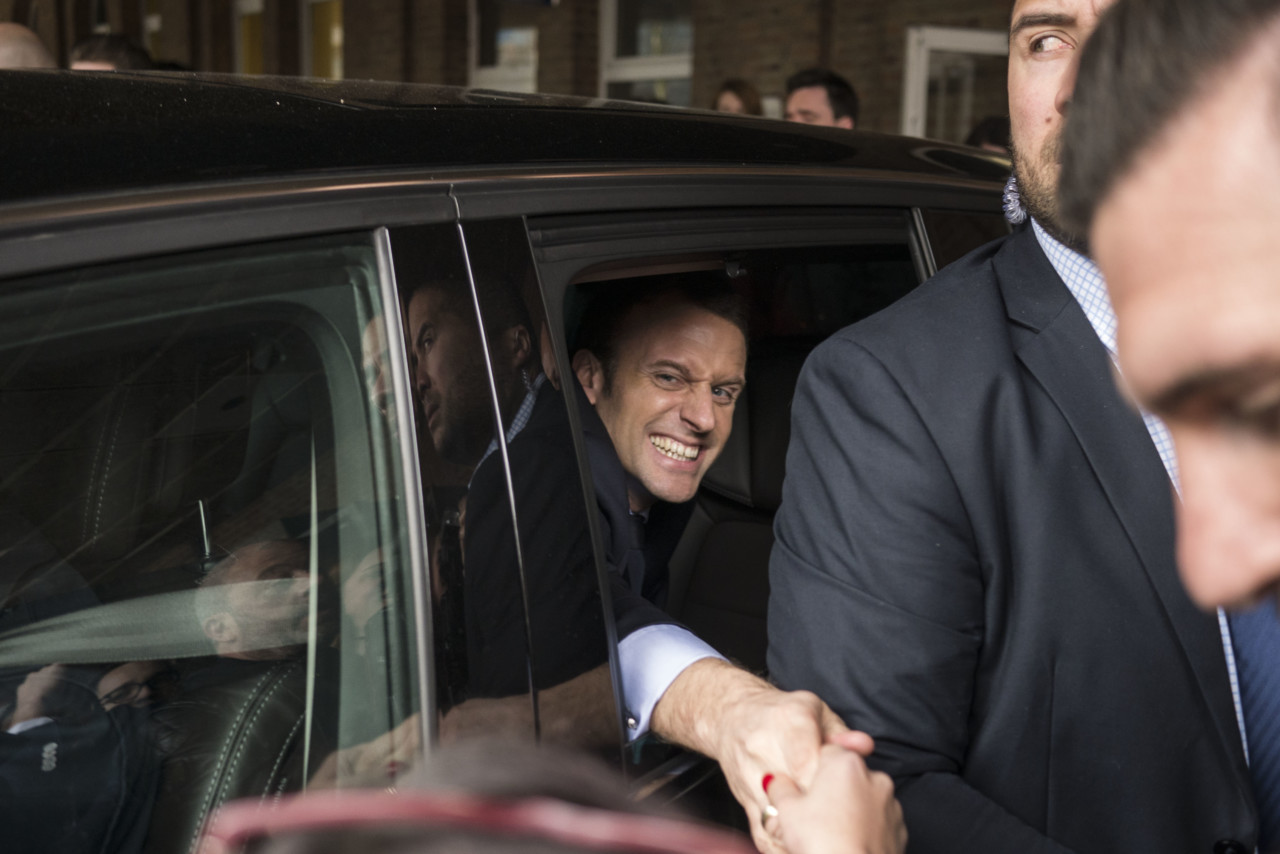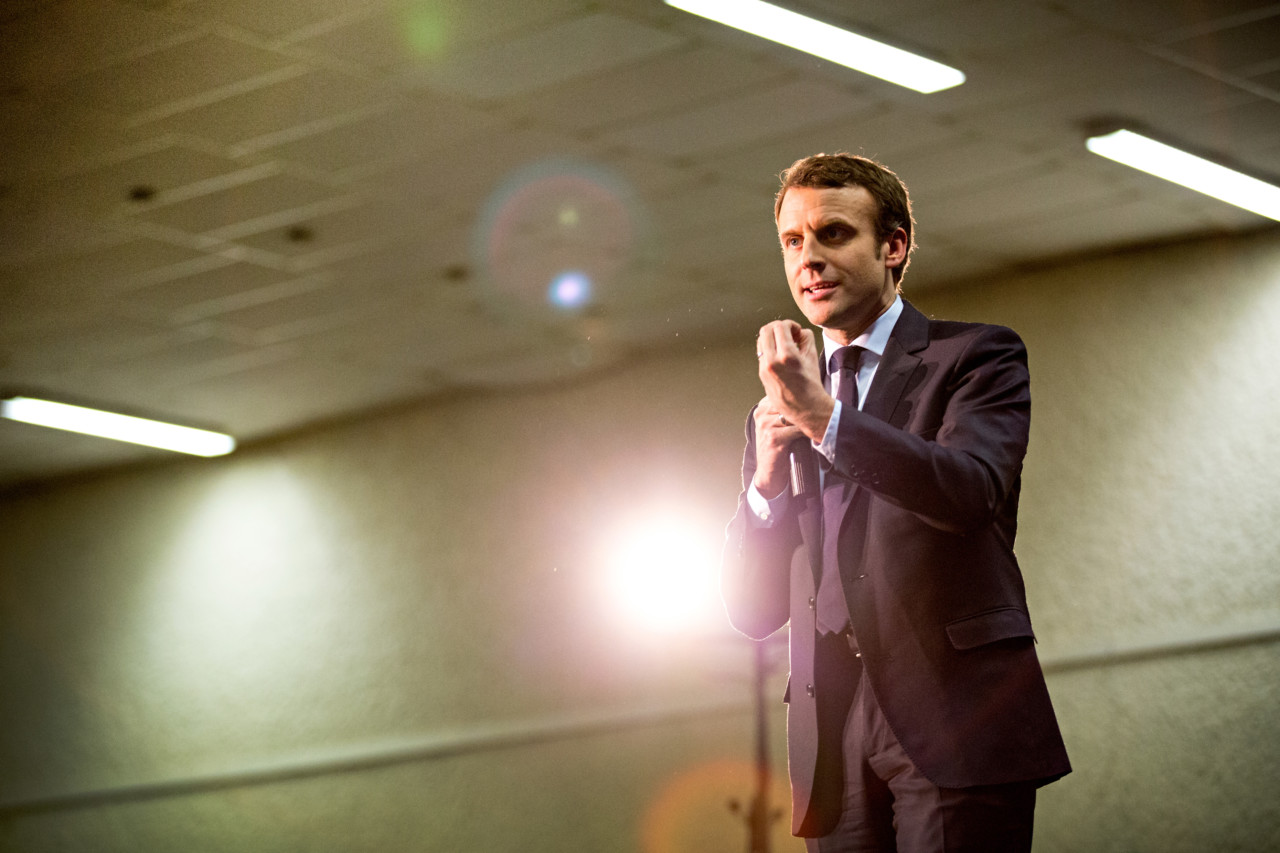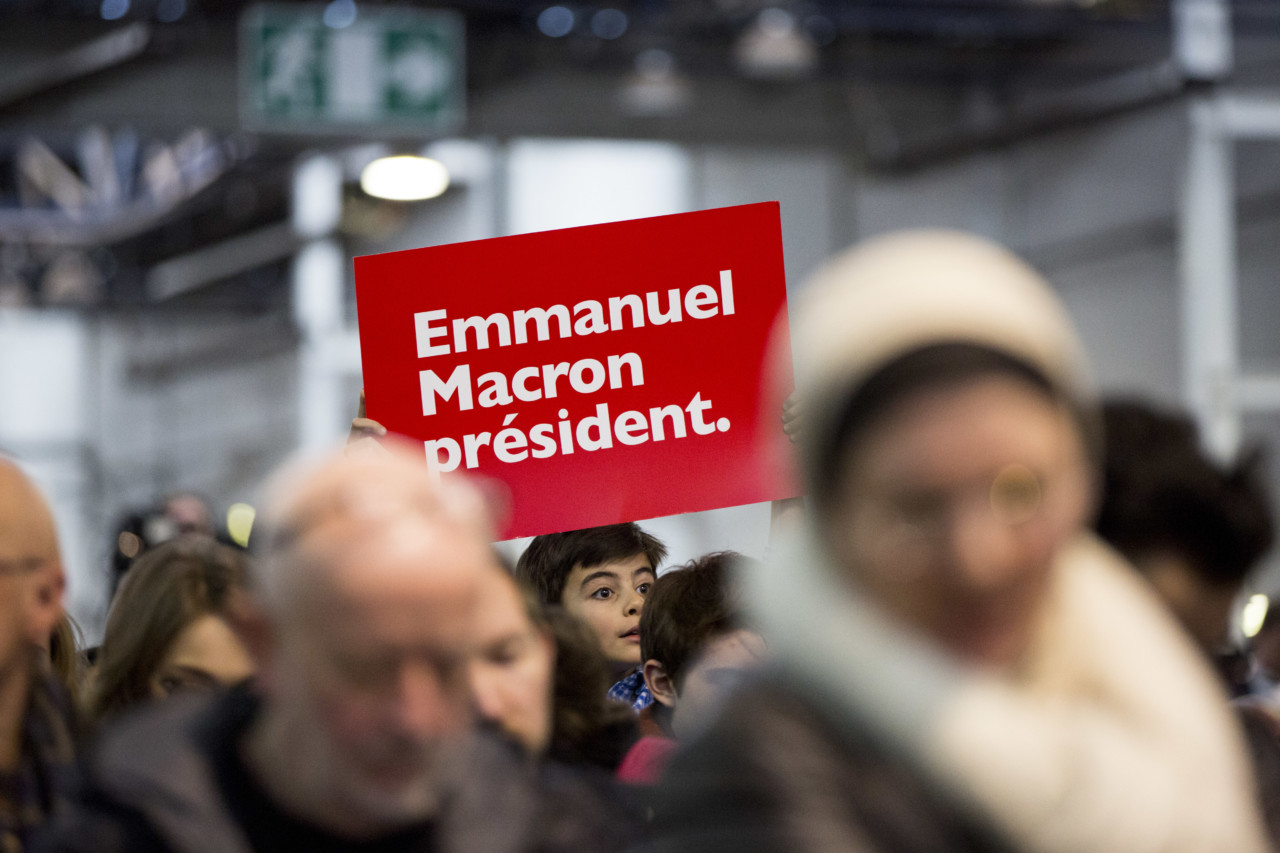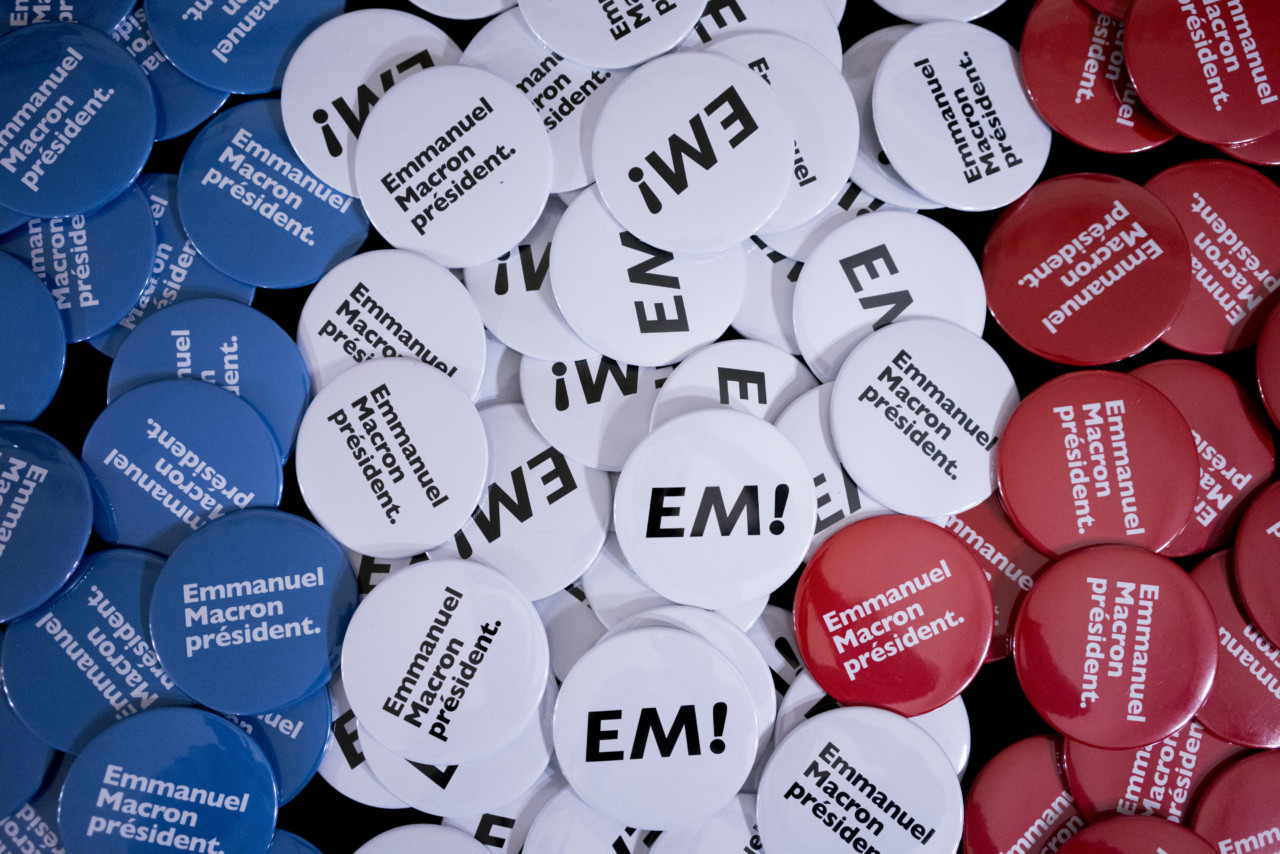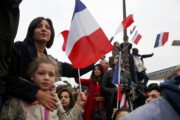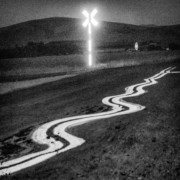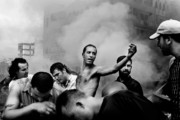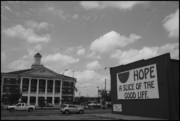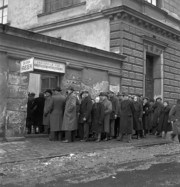A New French President: Emmanuel Macron’s Journey to the Elysee
Magnum photographers chart Macron’s quick rise to becoming President of France
Magnum Photographers
On Sunday May 7, 2017, the French people voted and chose Emmanuel Macron as their new president, just over a year after the center-right politician set up his party En Marche!
With a business-friendly vision of European integration, Macron beat far-right nationalist Marine Le Pen, by (a projected) 65.5 to 34.5 per cent of the vote. The 39-year-old former banker, and former member of the Socialist Party (2006-9) worked as secretary general under François Hollande’s first government in 2012. He was appointed Minister of Economy, Industry and Digital Affairs in 2014 under the Second Valls Government. He resigned in August 2016 and declared, in November 2016, that he would run in the presidential election under En Marche!.
The 2017 French presidential elections represented a shift in the political establishment. While Macron’s pro-European, pro-business En Marche! was based on the idea of changing the political establishment by bringing in people from business and other walks of life, his opponent, Marine Le Pen, who had temporarily stepped down as the far right’s Front National leader in the run-up to election, more than doubled the share in vote her father got in 2002 when he ran against Jacques Chirac.
During a divisive pre-election campaign process, many French people saw both candidates as unpalatable. This manifested in protests against both candidates on the streets of Paris, and early indications that suggest that the final abstention level is likely to stand at between 25-27 percent.
At just after 8pm Paris time on May 7, 2017, Le Pen conceded defeat, saying that the French had “voted for continuity” and called on “patriots” to join her in political combat as she suggested setting up “a new political force”.
Almost an hour later in a speech, Macron addressed his country, acknowledging the social and economic divisions present in France. He saluted his adversary and referenced the “anger” and “doubts” people have had, vowed to guarantee the “safety and unity of the nation”, “fight division” and defend the “community of Europe”.











